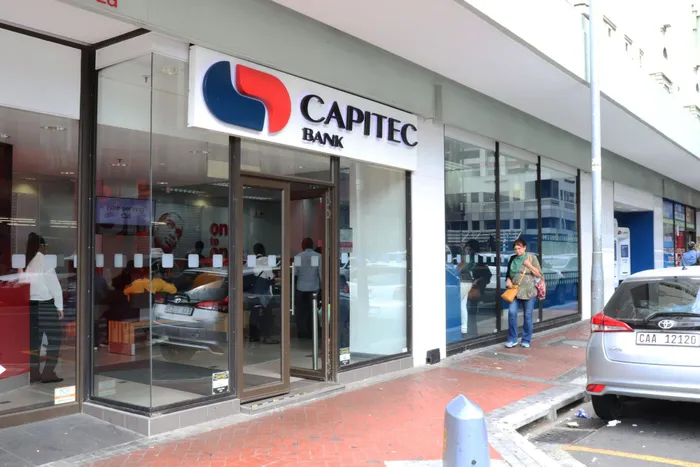
A Capitec employee has successfully challenged his debarment by the bank.
Image: Lubabalo Poswa/Independent Newspapers
A Capitec Bank employee has successfully challenged his debarment, which occurred after the bank accused him of colluding with a colleague by accepting stolen money.
Mhleli Glwala, who had diligently worked at the Gugulethu branch of Capitec since June 2015, faced a career upheaval when his colleague, known as DM, manipulated a client through a phone banking app.
In June 2024, DM conducted an authorised transaction on the client's account, stealing R1000 through a cash send.
He then contacted Glwala via WhatsApp, instructing him to withdraw the stolen funds, deposit R900 into his son's account, and keep R100 for himself.
Following this request, the situation escalated when DM later demanded Glwala delete the WhatsApp message, a request he refused. An investigation ensued and Gwala provided the forensic team with the WhatsApp text.
When the investigation was concluded, Glwala was charged with misconduct and accused of dishonesty for assisting DM to withdraw money he had fraudulently taken from a client's account.
In his defence, Glwala denied any wrongdoing and maintained that he was unaware that the transaction was fraudulent.
In July 2024, he was subjected to a polygraph test to verify the truthfulness of his claims and the test results indicated that he was not honest regarding his knowledge about the unauthorised nature of the transaction.
During the disciplinary hearing, the bank focused on the polygraph results, however, Glwala presented evidence from DM who testified that he acted alone when defrauding the client and confirmed that Glwala was not aware of the nature of the transaction.
However, the chairperson found him guilty of misconduct and noted that Glwala blindly followed through with instructions without verifying the source of the funds and reasons for DM's request.
He was issued with a final written warning and a two day suspension. Despite the sanction, the bank initiated debarment proceedings against Glwala, and the panel decided to debar him in December 2024.
Glwala sought relief at the Financial Service Tribunal where he maintained that he was innocent and said when he withdrew the funds he believed he was assisting a senior colleague.
To bolster his case, Glwala told the tribunal that he had provided the bank with unaltered WhatsApp conversations and argued that DM had testified to acting independently in committing the fraud, thus absolving him of any culpability.
He also highlighted that the bank’s own internal proceedings did not conclude his actions warranted dismissal, indicating a lack of justification for the penalty of debarment.
He said he also offered to pay back the R100.
The bank opposed Glwala's application, asserting that even if he claimed ignorance, his conduct demonstrated lack of honesty and integrity expected from financial service representatives. It was further argued that Glwala should have reported the unusual request for deletion of the WhatsApp message to his superiors, expressing concerns regarding his ethical judgment.
The bank also relied heavily on the polygraph test and said the results supported their view that Gama was intentionally involved in the scheme and he willingly accepted the R100.
Presiding over the matter, Advocate Kagiso Magano scrutinised the bank's stance, ultimately ruling in favour of Glwala. She stated that the assertions regarding Glwala's dishonesty were speculative and unsupported by concrete evidence.
"None of the provided facts establish that he was dishonest. They don't provide direct insight into his state of mind or prove that he possessed a fraudulent intent...The bank's case is based on inference of knowledge, yet no direct evidence was presented to prove that Glwala was aware of the fraud," said advocate Maga
She further added that the bank didn't challenge DM's testimony, and his evidence as the perpetrator provided a compelling alternative to Glwala's circumstantial case.
Cape Argus
Related Topics: